Inside MPS’s School System Reform Debate
I have been following the debate over the fate of MPS schools and felt it was time to share an insider’s perspective on what a particular public school reform looked like at the tactical level.
When Mayor Michael Bloomberg took control of the failing public school system in New York City in 2002, he was prepared to initiate new learning and exert strong leadership. Opposition was intense from a variety of sources and crucial conversations were the order of the day, day after day.
As part of the school reform movement, the New York City Leadership Academy was established with funding from private and business sources. Jack Welch, Caroline Kennedy, Richard Parsons and others were key contributors, both financially and as business resources.
The purpose of the Academy was to equip principals to be Transformational Leaders—the primary change agents at the heart of the school reform effort.
I was selected to be a facilitator for the New York City Leadership Academy—one of only two in the nation brought in to support local Academy staff. For two years I had an insider’s view of the things principals struggled with as they grew into their leadership roles.
Trust was an enormous issue. The fundamental issue, really. The fact that business leaders were teaching educators how to ‘do’ leadership rubbed many the wrong way. Teachers’ and principals’ unions were fiercely opposed to the effort and presented their point of view in capital letters. But the current system was broken and everybody knew it.
Schools were grossly underfunded, classrooms were severely overcrowded, and there was a chronic shortage of teaching supplies. Successive waves of non-English speaking immigrants challenged everyone’s ability to communicate. Violence in schools was shocking. Graduation rates hovered under 50%.
I heard stories of death threats against Mayor Bloomberg, Chancellor Joel Klein, and Leadership Academy CEO, Bob Knowling. I was personally confronted face-to-face by a screaming principal on the first day of our second year. She was twice my size and ANGRY! Fortunately, we had a year’s worth of work and success to point to. This bolstered my confidence and allowed me to stand my ground with some grace. I still have the ‘Thank You’ card she wrote a year later.
Fear was the common denominator among the 600 principals we taught. Fear of their new role. Fear of retribution from the union, colleagues, teachers, or the system itself. Fear of their own shortcomings.
As Transformational Leaders, principals were expected to do things they had never done before. Create a vision for their schools and articulate it with conviction and consistency. Create and manage a realistic budget. Actively coach teachers and begin to weed out the bad ones. Become more accessible to parents and community members. And do most of this work using new technology within an administrative and operational system that had changed.
Our job as facilitators was not glamorous. We were responsible for engaging, teaching, coaching, admonishing, and supporting their learning. As you might expect, we were constantly challenged. Every time a new skill was introduced, someone asked why. Why did they have to learn this stuff? Why were they forced to videotape their Vision speech? Why were we business people there? What did we know about pedagogy? What did we know about education?
As stand-ins for the big name leaders (Bloomberg, Klein and others), we took our share of abuse. But our willingness to forgive bad behavior in the moment and our patience and persistence in running workshops that literally forced participation and practice eventually led to improved skills, enhanced confidence, and a new appreciation of the fact that not only people but systems can change.
The biggest and best answer to the ‘why’ question was: “For the kids.”
To continue supporting a system that failed half of New York City’s public school children was to condemn them to a future of futility. Every one of us who struggled through those two tough years knew we had to change the way we thought, acted, and taught if we were to create a better opportunity for more kids to learn.
You will find people today who scorn our efforts, who say that the schools are no better off, that Mayor Bloomberg and Chancellor Klein were self-interested, power-hungry tyrants. Having worked with Joel Klein, I know this to be patently untrue.
However, having seen the bitter face of fear and its unyielding resistance to change, I understand why people say such things. I know they are not thinking about the future of our kids. I also know that when they can rid themselves of fear and begin to learn and be rewarded for new ideas, new skills, and new practices, they do start thinking about kids. When this happens, it looks like magic.
This is what needs to happen across our nation. I hope our leaders care more about the future of our kids than the entrenched systems that protect and reward adults. None of this is easy. But it is essential.
Categories: Education